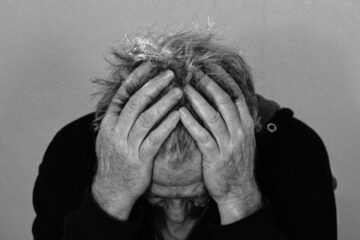![]()
Introduction:
With the hike in the coronavirus cases around the world, there arises a major question or consideration regarding, whether or not a person who spreads the virus can be made liable by the courts for their negligent act. In order to determine as to who will be held liable, it is necessary to know the doctrine of negligence and the possible liability it imposes on a person.
Before going into the details and essentials of the law of negligence, it is necessary to know what the Covid-19 virus is. This virus causes an illness which is a mild to severe respiratory illness. Covid-19 is characterized as a contagious and infectious disease that threatens the public health as it is mainly spread through the droplets generated when an affected person sneezes or coughs or it can also be spread through the saliva droplets or nose releases of an infected person.
Negligence and its Conditions
The affected individuals will be held liable for having the knowledge that they had the virus in them and they do not take efforts to prevent the spread of this CoVID -19, this is the result of their negligent act. The law of negligence has three essential conditions. They are as follows:
- Duty of care
- Breach of duty
- Damages
- Duty of care
A certain duty of care is essential to prevent the transmission of the virus. Duty of care means a legal duty. To decide whether there is a duty of care, certain points have to be considered. The possible harm that can be caused to the plaintiff, the degree of certainty that the plaintiff suffered injury, the connection between the defendant’s conduct and the injury suffered, the policy of preventing future harm, the extent of the burden to the defendant, etc.[1](Simana,2020)
There is a high rate of risk & infection which is spread through the circulation of the coronavirus. It is the uniform and collective duty of each individual or person to collectively act responsibly in order to concur with the prevention of SARS-CoV-2 as a public policy. Extra care has to be taken by each person to make sure they are not in close proximity with others so as to prevent the spread. The record of the previous cases shows us that some of the affected individuals who knew that they were carriers of SARS-CoV-2, instead of taking proper precautions of avoiding physical contact with others, acted in such a way that put other the life of others at the sake of risk. [2](Shaniadash,202)
- Breach of duty
Once the existence of a duty is proved, it is necessary to determine or that there has been a breach of that duty. Prevention of the circulation or transmission of the disease or an infection is the breach of duty. In the case of COVID-19, once a person who is tested positive for the virus or if a person who had symptoms of this virus goes on to the public place forbidding to take proper precautions with the knowledge that it is a high risk for other fellow beings.
With the tremendous rise in the coronavirus case, there is a high possibility that the person who is infected with the virus will transmit it to other people. A breach of duty to prevent the spread of the virus is said to take place when an infected person who knows or suspects to have been infected, forbids to stay in quarantine and goes on to a public place. Moreover with the extensive coverage of media and the information people have been made aware of about the Covid-19, it is hard to prove that the infected person was not negligent in taking proper precautions.
Casual Connection
The plaintiff or the affected person has to prove that the defendant’s action or negligence caused his injury. In certain cases, the defendant’s action may not be the reason for the plaintiff’s injury or harm. It may be hard to prove that the reason for the transmission of the virus is due to the infected person as the virus or infection could also spread from the remains of it on surfaces from public places.
In cases where the mode of transmission of the virus is through direct contact or body fluids, the reason as to how it was spread can be identified easier than which is spread through other modes. When the mode of transmission of the virus is through direct contact, the travel history of people, the places they visited, the people they have been in contact with, etc can be easily traced.
In certain cases, the infected person may intentionally or purposely cough or spit on others to spread the disease. A battery is thus said to happen when one person touches or does something on another without obtaining their permission but intentionally. The possibility of batteries with regard to transmission of the virus are rare, but they have occurred. [3](Bangia,2017)
- Damages
The last element to be proved is the damages which the plaintiff suffers. The damages may be either in the form of pecuniary or non-pecuniary losses. Pecuniary losses comprise of the high medical expenses of the plaintiff. Non-pecuniary losses comprise the severe physical pain and illness suffered by the plaintiff which could even lead to his death.
Case Studies
Certain people in the USA formed groups purposely in order to spread the virus. In a case, an Indian singer named Kanika Kapoor was supposed to stay in quarantine, went on to attend certain events. In another case, two travelers who had been tested positive for the Covid-19, traveled to an island in South Korea. All these cases show that the parties who were supposed to perform a duty of staying in quarantine, conducted a breach of their duty thereby making them liable for their negligence.[4](Kanchadani,2020)
In a case, a hospital employee who was Covid-19 patient went to an event, thereby conducting a breach of duty by not staying in quarantine. Last example of which is known as the “Coronavirus Fight”, in this case, a group of 114 members of a particular group took a flight from New York to Israel , notwithstanding the fact that there was a massive spread of the virus in the neighborhood of Crown Heights. On reaching Israel,it was figured out that 65 of those passengers were carriers of Covid-19 and the other 200 passengers along with the crew were sent to be on quarantine for a certain period of 14 days.[5](Simana S,2020)
In order to make the infected person responsible or liable for spreading the virus, they should have the actual knowledge that they are carriers of the disease. In Endres v. Endres, the court held that a person would be made liable if he didn’t have the knowledge that they were carriers of a disease but had symptoms with which they should have acted accordingly refused to do so.
In Doe v. Roe, the court of California held a person liable for the spread of a disease which he believed was not infected. The court had inflicted liability on the person who believed to not spread as he had no symptoms of the herpes disease.
In the case of John B. v. Superior Court of California, it was held that the burden of duty or breach of duty of care falls on the defendants.
In all the cases listed above, the defendant or the person who is the carrier of the virus knew that he had the disease which would spread if they have close contact with others and their act will result in putting a fellow being at risk.[6](Shaniadash,2020)
In Hendricks v. Butcher, it was said that if a person who has knowledge that the other person is infected or affected with a disease of smallpox which is contagious or rather infectious should avoid communication with that person. In Kliegel v Aitken, it was held that a person despite taking proper due care, exposes a person to another who has a disease will be liable in damages for the negligence.[7](Kanchandhani,2020)
Conclusion
The widespread of the COVID -19 virus across the world has undoubtedly been one of the most burdensome period for all the countries. As the cases are drearily very high, the responsibility falls on each and every individual to act wisely when they are aware of the fact of being or likely to be exposed or infected with the virus. Each individual must take proper precautions and be held liable if they perform any negligent act.
References:
[1] Simana, S. (2020, April 14). Coronavirus Negligence: Liability for COVID-19 Transmission. Bill of Health. https://blog.petrieflom.law.harvard.edu/2020/04/14/coronavirus-negligence-liability-for-covid-19-transmission/
[2] Shaniadash. (2020). Tort Law and Covid-19: Liability for transmission. Www.Legalserviceindia.Com. http://www.legalserviceindia.com/legal/article-2735-tort-law-and-covid-19-liability-for-transmission.html
[3] Bangia, R. k. (2017). LAW OF TORTS (24th ed., p. 700). Allahabad Law Agency.
[4] Khanchandani, H. (2020, June 4). COVID-19 and Tort Law: Examining liability for spreading the Virus. Latest Laws. https://www.latestlaws.com/articles/covid-19-and-tort-law-examining-liability-for-spreading-the-virus/
[5] Simana, S. (2020, April 14). Coronavirus Negligence: Liability for COVID-19 Transmission. Bill of Health. https://blog.petrieflom.law.harvard.edu/2020/04/14/coronavirus-negligence-liability-for-covid-19-transmission/
[6] Shaniadash. (2020). Tort Law and Covid-19: Liability for transmission. Www.Legalserviceindia.Com. http://www.legalserviceindia.com/legal/article-2735-tort-law-and-covid-19-liability-for-transmission.html
[7] Khanchandani, H. (2020, June 4). COVID-19 and Tort Law: Examining liability for spreading the Virus. Latest Laws. https://www.latestlaws.com/articles/covid-19-and-tort-law-examining-liability-for-spreading-the-virus/



1 Comment
Abraham Mulamootil · 30/08/2020 at 9:53 PM
People seem to be literate. but our responsibility towards society is lacking everywhere. Your article can give some light.